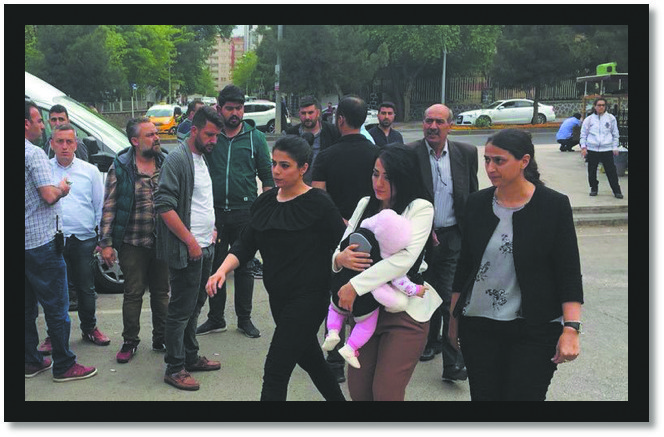The country of Turkey, a marvelous land with rich, cultural history throughout several of its major cities. Istanbul has some of the most historical mosques and churches in the world, such as the Sultan Ahmed and Hagia Sophia. Ankara, Turkey’s capital, holds nothing but pure Turkish culture throughout the city, where everyone knows each other is a part of one, inclusive community. The sun has always been bright in Turkey — however, there was a dark cloud cast over it on July 15, 2016.
On that night, the country was in chaos. Doors were shut, windows were closed, and streets were flooded with Turkish militants in Ankara, Istanbul and several other cities. This was a planned operation led by the Turkish military against the president, Recep Tayyip Erdogan — an act for the government to show him they were not fond of his regime. Military tanks were at street corners with citizens, militants, police officers, and everyone else in between outside in protest — mostly against each other. As mayhem flooded the streets, jets flew in the sky as well — frightening citizens who were still understanding the conflict.
This military coup attempt was Turkey’s bloodiest. According to NPR news, around 249 hundred civilians lost their lives that night. However, the price of this coup attempt did not end with just the 249 hundred martyrs — it was only the beginning. Soon, the vanishment of citizens, the random arrests of civilians, loss of jobs, abolishment of schools and institutions, cancellation of citizenship and borders were established in Turkey. According to BBC News, 6,000 thousand people were detained after the coup. These numbers have escalated over the years.
An article on the Human Rights Watch, written upon the incarceration of Turkish lawyers, included a report from the Arrested Lawyers Initiative that has records of the prosecution of over 1,500 thousand Turkish lawyers.
“Putting hundreds of lawyers in jail and on trial, and restricting their ability to act for people in police custody and in court, shows the dire state of Turkey’s criminal justice system and should be of grave concern to everyone in Turkey and internationally,” said Hugh Williamson, Europe and Central Asia director at Human Rights Watch.
However, the persecution doesn’t end with lawyers. Doctors, teachers, educators, judges, police officers, militants, and mothers are also affected by this today.
According to the Advocates of Silenced Turkey, there are 319 hundred jailed journalists in Turkey right now — the highest number in history of journalists detained in one country. There are also 668 hundred children under the age of six with mothers in jail and 17,000 thousand women in pre-trial detention centers in Turkey. Today, their stories are only told in the different countries they fled to seek refuge in.
Turkish citizens study in their home country for years just like us. They get their doctorate in medicine, or their masters in science to become doctors, engineers, biologists, lawyers and more.
But here in the U.S., the most Turkish migrants can do with their degree is drive for Uber or work in a pizzeria due to the difficulty of adapting to American culture. They have a completely new language to learn, a culture different than theirs to get used to, trauma from their suffering, and adapting to life beyond their homeland. They also endure many hardships as they try to apply for asylum within the U.S.
It’s not the government that is facing the consequences of this 2016 coup attempt — its their own citizens. The hardest thing about being away from Turkey is being forced to leave family behind. It’s hard to come in and out of country, and it is unpredictable when they will see each other again. Many were forced to flee their country, with cases of people losing their sanity in prisons, and sadly passing away before reuniting with their loved ones. Due to the conflict, countless families that fled were not able to attend their own family members funerals because of the inevitable danger of returning to Turkey.
This is their reality today. This is not a Turkish or religious or political problem — this is a human problem. But the question remains: How can we as humans help?
We have voices which can be amplified with social media. The more recognition the story of those affected in Turkey gets, the better — especially in the U.S. Unfortunately, for the people prosecuted in Turkey, there is not much we can do to spread awareness. All we can do is hope for a better future.
For more information on the coup’s effect on citizens, you can read it at the Financial Times, under Voices of Turkeys purge.
By Bengisi Incetas
Source: Tacoma Ledger



